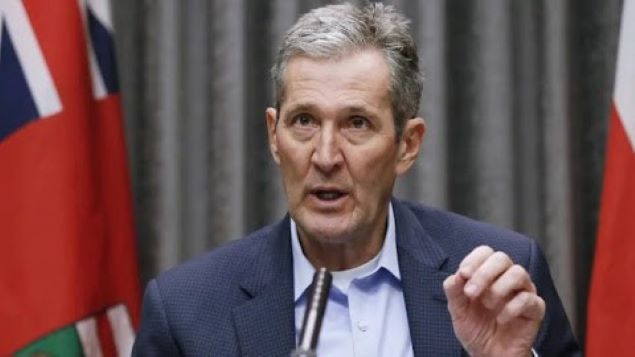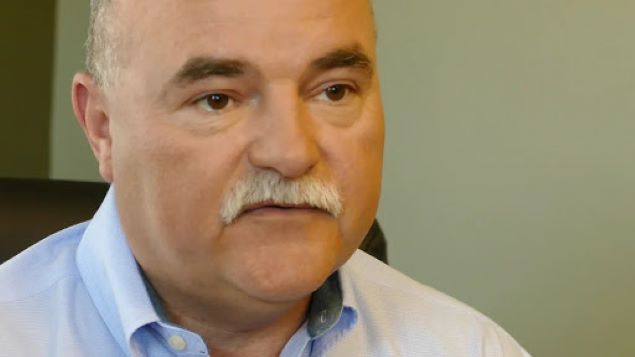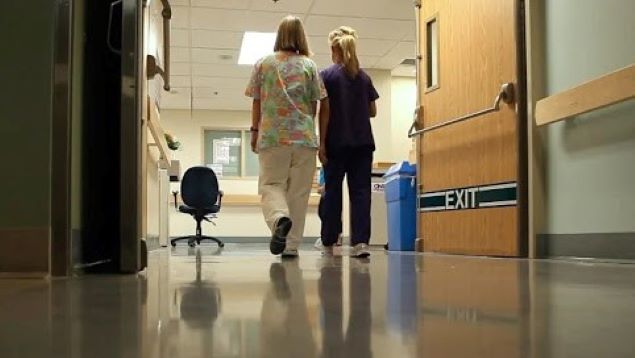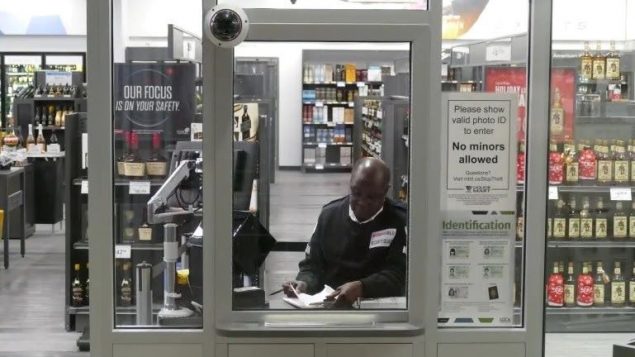The province of Manitoba is distributing $120 million to workers who have been on the front lines during the COVID-19 crisis.
The money will see about 100,000 essential services employees receive checks of around $1,000 each under what the province calls a ‘hero pay’ program announced last month by the province and the federal government, which is providing about three-quarters of the money.
The final amount of the payment will depend on how many people apply for it.
Premier Brian Pallister announced the list of eligible workers on Tuesday.

Manitoba Premier Brian Pallister (pictured last month) announced the workers who are eligible for the risk recognition payment on Tuesday. (THE CANADIAN PRESS)
It includes retail staff, cashiers, cooks, cleaners, family violence shelter workers, social workers, health-care aids, community service workers, direct service workers for adults and children with disabilities, correctional officers, and truck and bus drivers.
The Manitoba Risk Recognition Program has been a collaborative effort among 15 unions, business community leaders and critical service providers to find a way to split the money fairly among those on the front-lines of the COVID-19 pandemic in the province.
But not everyone is happy, saying that while many are eligible for the one-time payment, only low-income workers will be able to cash in.
CBC News’ Ian Froese and Rachel Bergen report that eligibility rules mean higher-income professions — including nurses, nurse practitioners, police officers and paramedics — who are on the list, will not qualify because of their incomes.
Jeff Traeger, president of the United Food and Commercial Workers Local 832, told CBC News that only about half of grocery store workers would be eligible, and only those security guards working in essential settings would qualify.

Jeff Traeger, president of United Food and Commercial Workers Union local 832, estimates that only half of grocery store workers will qualify for the one-time payment. (Riley Laychuk/CBC)
Froese and Bergen report that the head of the Manitoba Association of Health Care Professionals “bristled when Pallister suggested the government’s plan for the $120 million, voted on by the working group, was a ‘consensus.'”
President Bob Moroz said the government should have decided whether it wanted a program based on risk or wage.
Instead, he said it’s left with a “risk recognition program” that he says could exclude the vast majority of the members he represents.
“We could have people who are working in the very same department … working for the exact same hourly wage, but the person who works less hours would qualify for this risk recognition versus the full-time person,” he said.
The Manitoba Nurses Union told CBC News that it was “disingenuous” to claim nurses and nurse practitioners are being included, when most nurses cannot qualify.

The Manitoba Nurses Union says many of its members will not be able to collect the payment. (Eric Foss/CBC)
According to President Darlene Jackson, only a small number of early career licensed practical nurses, or LPNs, are eligible, and only if they work well under full-time hours.
“If it’s [a] low-income [program], so be it, that’s where it goes,” she said.
“But I felt that they were asking nurses to make a decision on who should get the money and who didn’t, and we believe that everyone should be recognized in some way.”
Pallister said Tuesday that unions, labour groups and business leaders were invited to provide input, adding that they had agreed that lower and middle-income earners should get the majority of the money.
“I think what we’ve arrived at is a consensus that we can now deliver with pride.”
The payment will be available to employees who worked on a part-time and full-time basis from March 20 until May 29 and who worked a minimum of 200 cumulative hours or could have worked but were required to self-isolate because of public health orders.
They also must have a total pre-tax employment income of less than $6,250 during that period and they cannot be enrolled in the Canada Emergency Response Benefit.
“It’s an income-tested benefit, it’s designed for middle and lower-income people,” said Pallister, adding that the goal is everyone who applies will get money.
With files from CBC News (Ian Froese, Rachel Bergen)







For reasons beyond our control, and for an undetermined period of time, our comment section is now closed. However, our social networks remain open to your contributions.